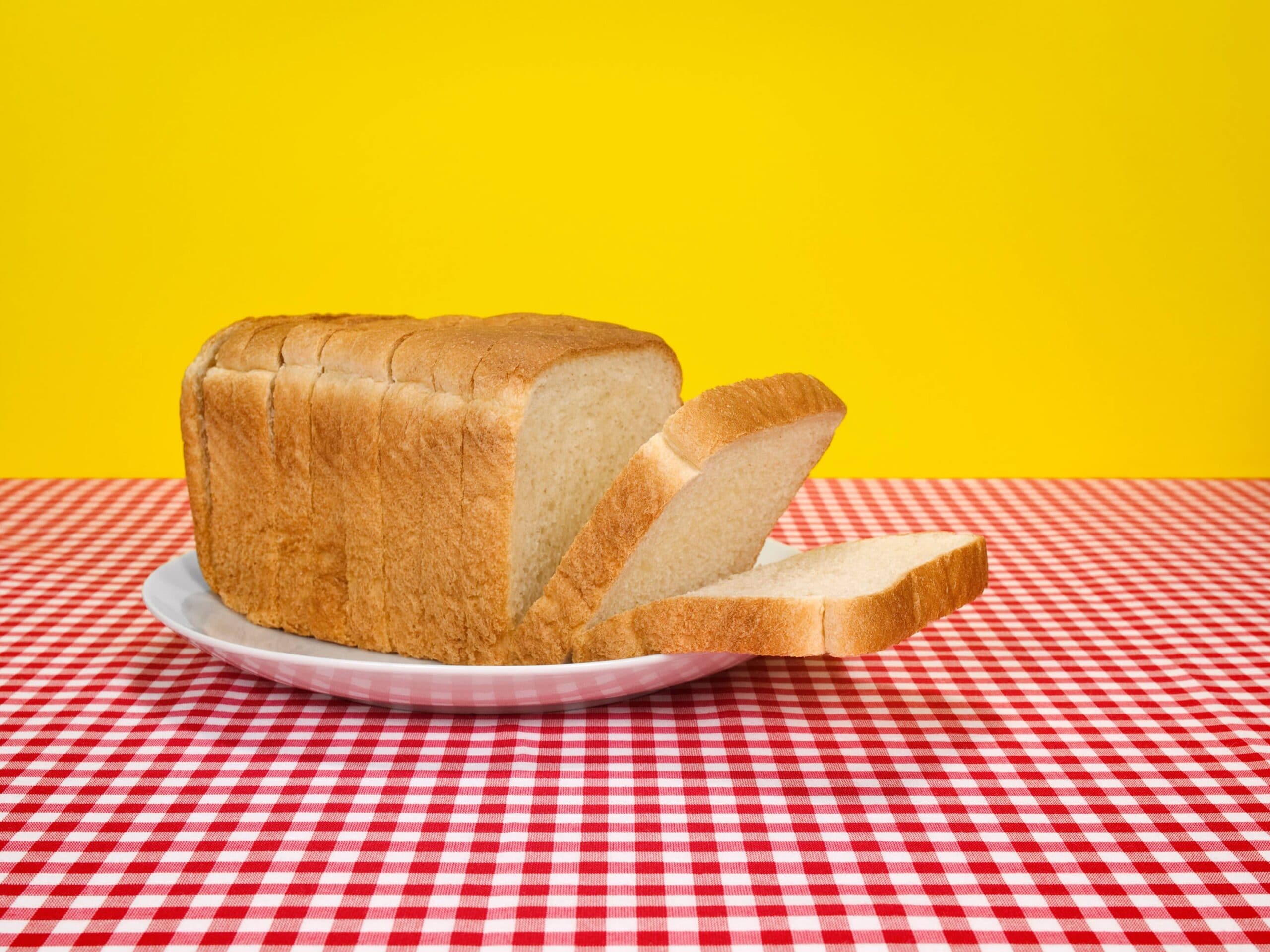It’s long been recommended that women take folic acid supplements during early stages of pregnancy, to reduce the risk of certain developmental problems for the baby.
Now, the government has announced plans to fortify non-wholewheat flour with folic acid, meaning it will be in many breads, among other things.
They say this will help prevent around 200 cases of neural tube defects (potentially life-threatening defects affecting the spinal cord, spine or brain) in newborns each year – around a fifth of the UK total.

Similar schemes have already been effective in other countries and some UK products are already fortified with folic acid – like certain breakfast cereals. Plus, lots of the flour we consume is already fortified with calcium, iron, niacin and thiamine.
Not entirely sure what folic acid is and why it’s so important? We talked to a GP and leading dietitian.
What exactly is folic acid?
“Folic acid is the synthetic version of a B vitamin [B9] that’s needed to form red blood cells.
It occurs naturally in food in a form called folate,” says Dr Harriet Bradley, medical director at online GP service, Livi.
The plans to fortify flour are focussed on infant development – because this is especially crucial – however, B vitamins are important for everybody.
“Folate is essential for the production of DNA and RNA, the division of cells and the metabolism of amino acids which come from proteins,” says leading dietitian Sophie Medlin, founder City Dietitans.
“Any tissues, organs or processes that rely on our body’s ability to generate new cells, like our producing and maintaining healthy blood, the lining of our mouth and gut, our immune system and when we’re growing a baby, use up a lot of folate and require folate to work effectively.”
Dr Kourosh Ahmadi, Reader in Nutritional Genomics at the University of Surrey said of the news, “The announcement made today for the approval of mandatory folic acid fortification in flour is ground-breaking for the UK. It is well known that folic acid is an essential nutrient for health, and in particular for the unborn foetus.
There is strong scientific evidence to show that folic acid is critical because it can help prevent some major birth defects of the baby’s brain (anencephaly) and spine (spina bifida). Our National Diet and Nutrition Survey (NDNS) has consistently shown folic acid intakes and intakes of the vitamin B complex, in general, to be low amongst women of childbearing age.”
He continued: “This is a pivotal moment for the UK. We have been amongst the first groups to report heritability estimates of B-vitamin biomarker status among the general population and more recently high rates of B-vitamin deficiency and insufficiency, including folates and vitamin B12, among pregnant mothers and healthy women of child-bearing age.
This move to now put folic acid in all white flour products has the potential to not only prevent 200 birth defects a year but to also ensure that all newborn babies have the best possible start to their long and healthy lives.”
Where do we normally get folic acid from and why might we need more?

“Many foods are rich in folate, particularly broccoli and other green vegetables like cabbage, kale and spinach. However, folic acid is a water-soluble vitamin, which means it is needed in the diet daily and cannot be stored in the body,” says Bradley. “It is also easily lost in cooking, especially if food is boiled or overcooked.
This is one of the reasons that some foods are already fortified with folic acid, along with other vitamins.”
Other good sources? Bradley also lists beans and legumes; yeast and beef extracts; oranges and orange juice; wheat bran and other whole grain foods, plus poultry, pork, shellfish and liver.
What happens if you are not getting enough folic acid?
Bradley explains “a deficiency can make it harder for red blood cells to carry oxygen, leading to a condition known as large cell anaemia. Symptoms of deficiency usually develop slowly and worsen if left untreated,” she adds. “These can include weakness, pins and needles, mouth ulcers, diarrhoea, loss of appetite and weight loss, and it can also cause heart palpitations and headaches.”
Why is folic acid to important for growing babies?
“When women are pregnant, any nutritional deficiencies they are experiencing will have an impact on their growing baby. Folate deficiency is talked about most commonly as it can have devastating consequences,” says Medlin. “Women need a lot of extra folic acid during pregnancy because the growing baby is using it up as their cells divide and the baby grows.”
Bradley explains: “Folic acid helps to prevent birth defects known as neural tube defects, including spina bifida. When you are pregnant, it’s difficult to get enough folate recommended for a healthy pregnancy from food alone, which is why it’s important to take a folic acid supplement – you should take a 400 micrograms tablet every day when you begin trying for a baby, and until you are 12 weeks pregnant.
If you are at an increased risk of your pregnancy being affected by neural tube defects, consult your doctor, who will likely advise you to take a higher dose of folic acid.”
Medlin, who welcomes the move to fortify flour with folic acid, adds: “Many women don’t know they’re pregnant when the neural tube closes at four weeks of gestation, so they won’t be supplementing or worrying about their diet.”

She acknowledges not everyone eats many flour-based foods though: “Unfortunately, due to the demonisation of carbs and therefore foods containing flour by wellness influencers, there will still be many women who are avoiding flour and therefore won’t benefit from the fortification.”
So, it’s a good idea to be aware of why a balanced diet is important, and to speak to your GP if you are concerned about any possible symptoms or nutritional deficiencies, as well as any concerns around pregnancy nutrition.





